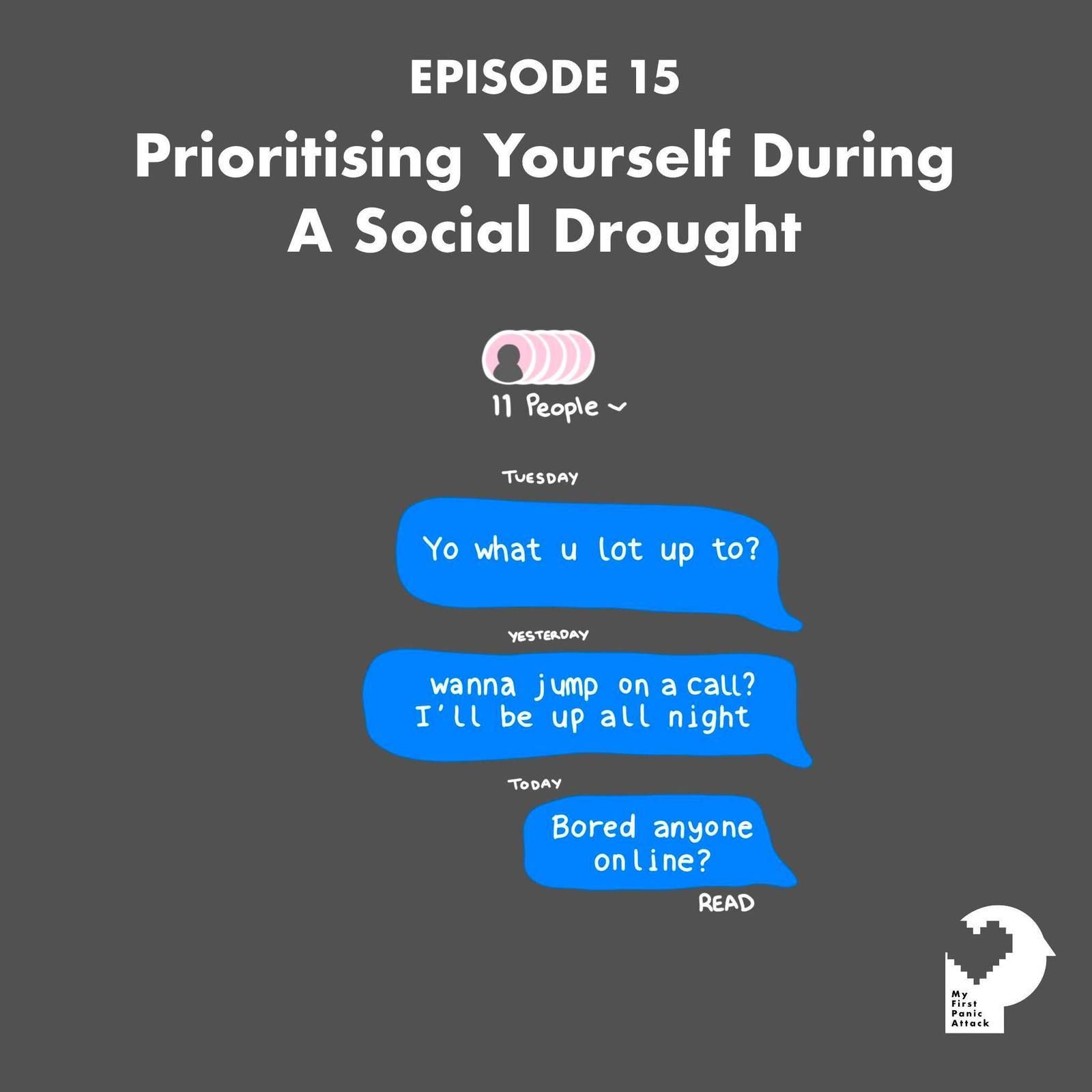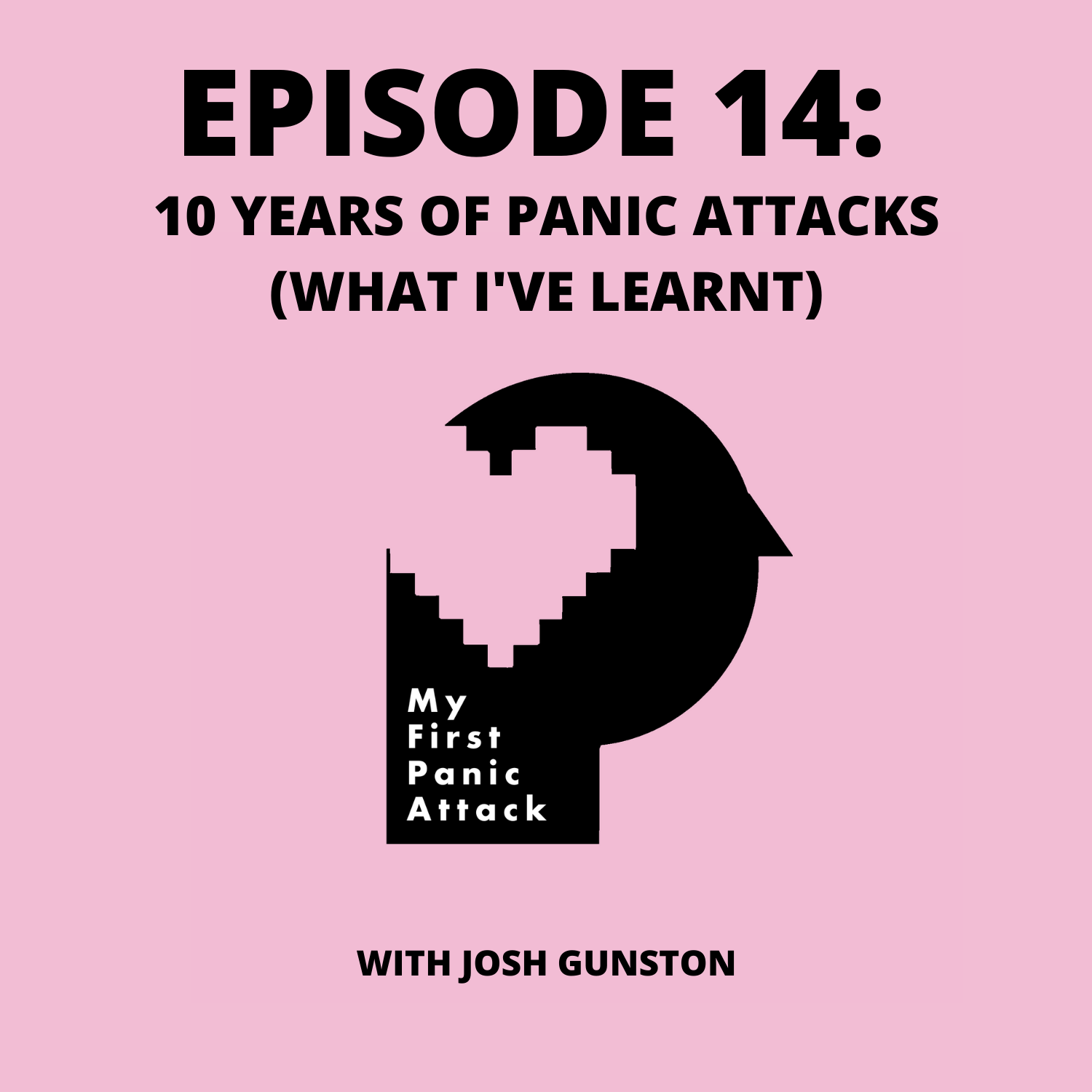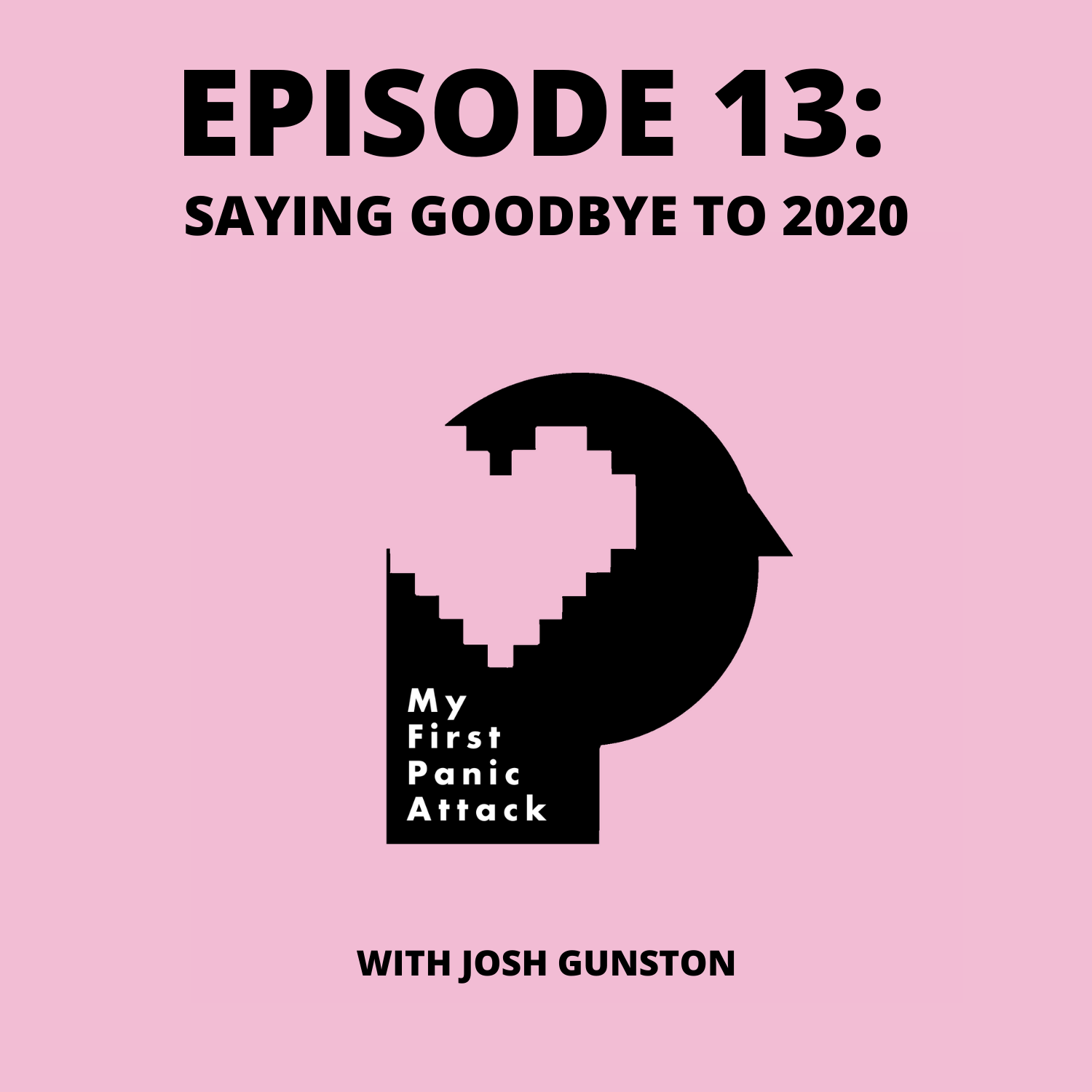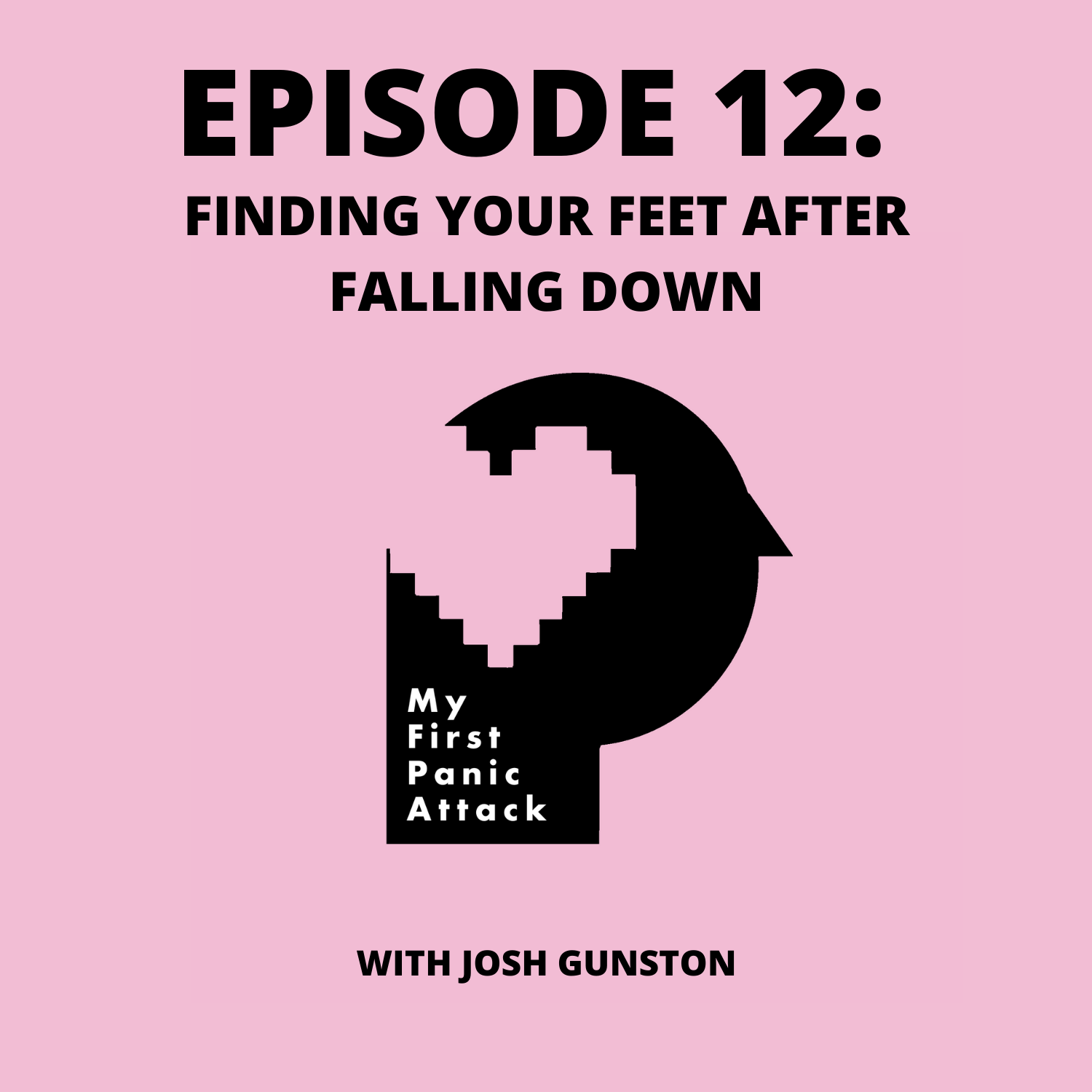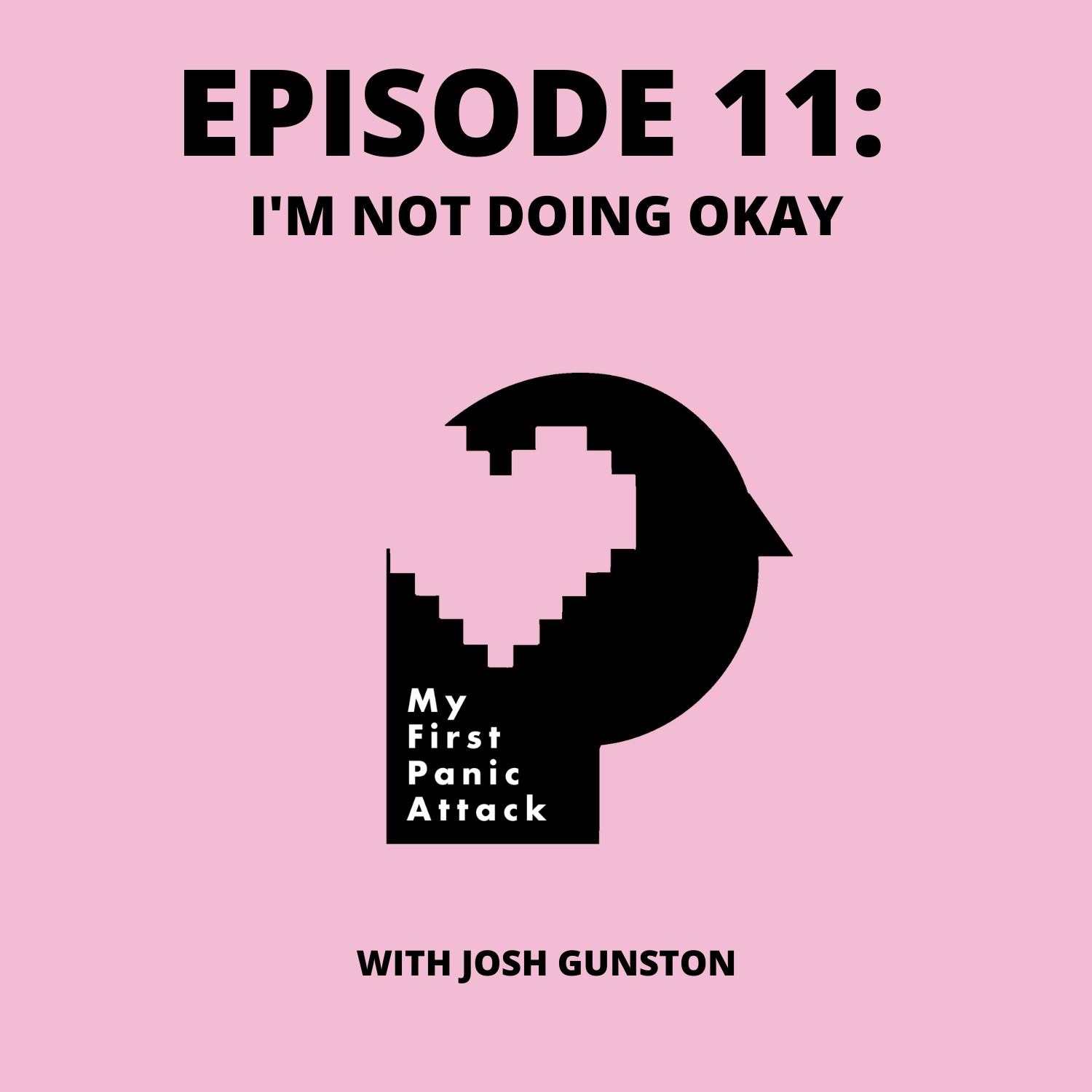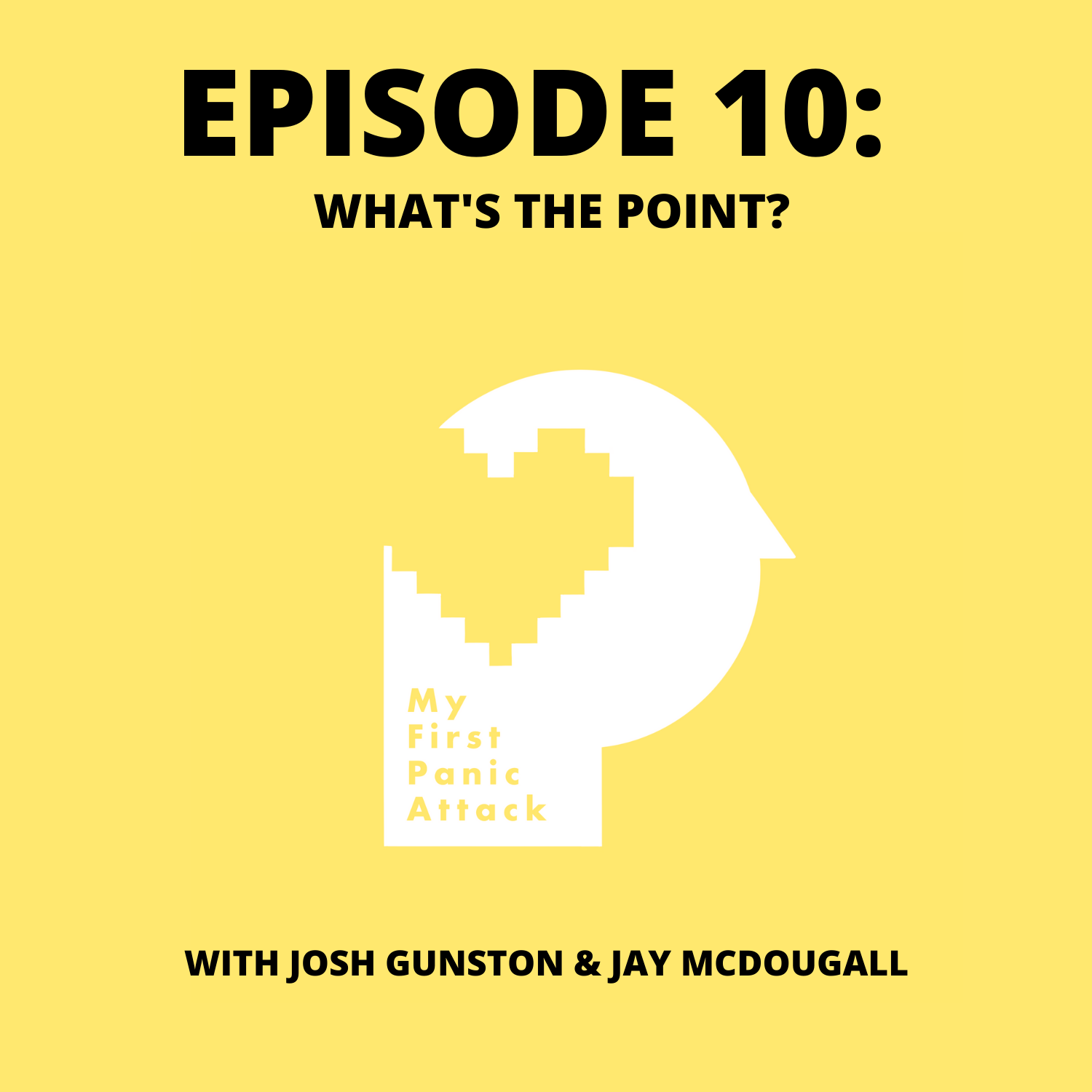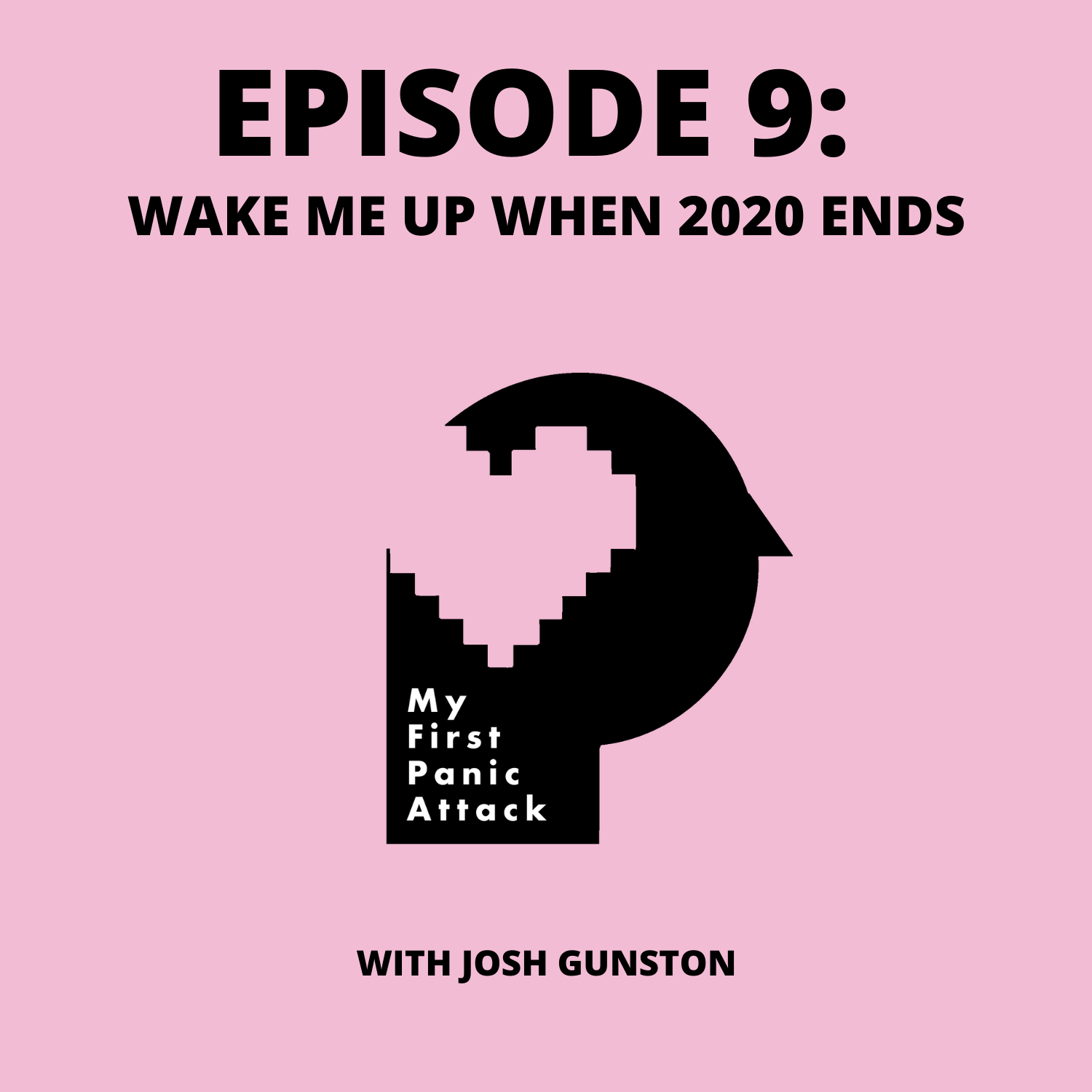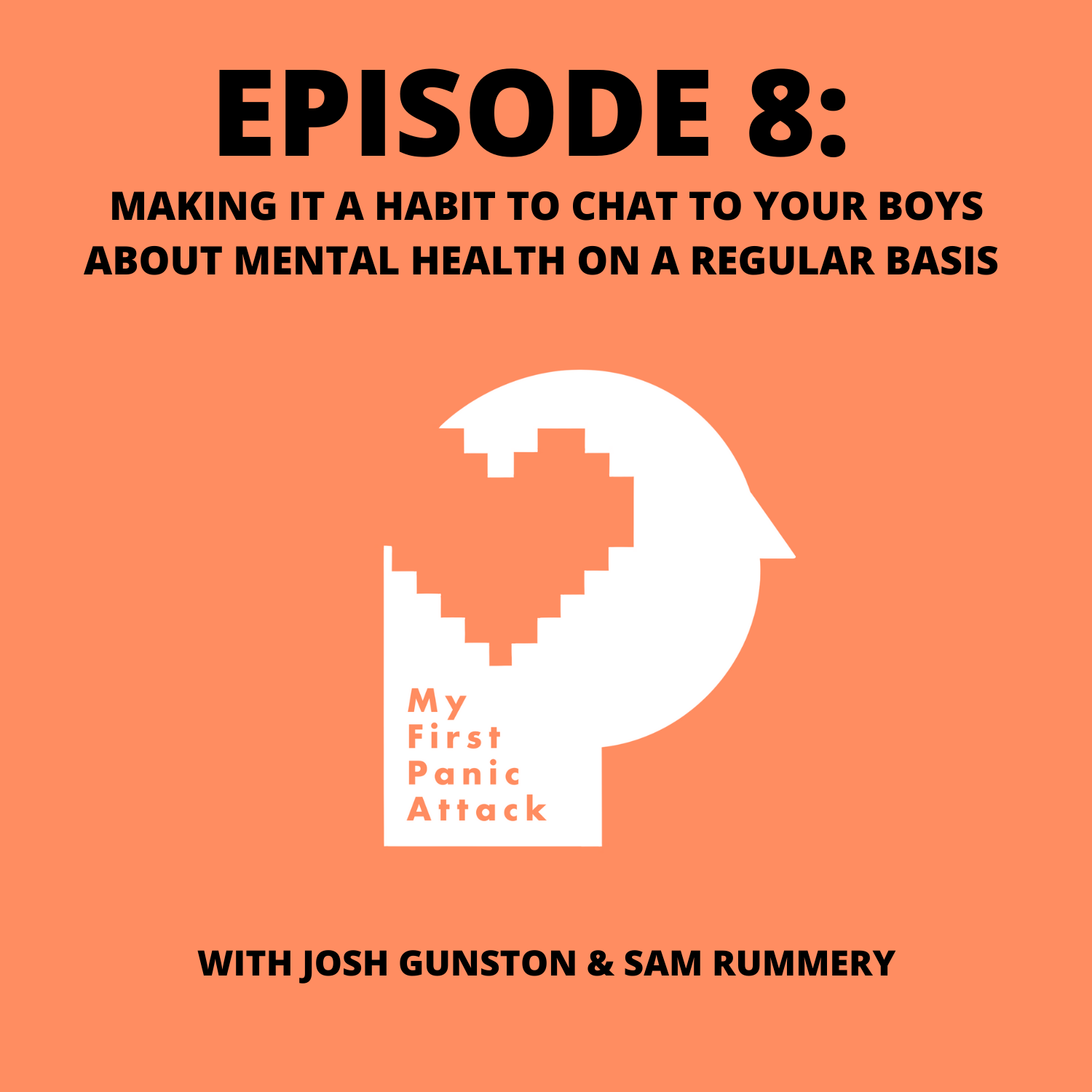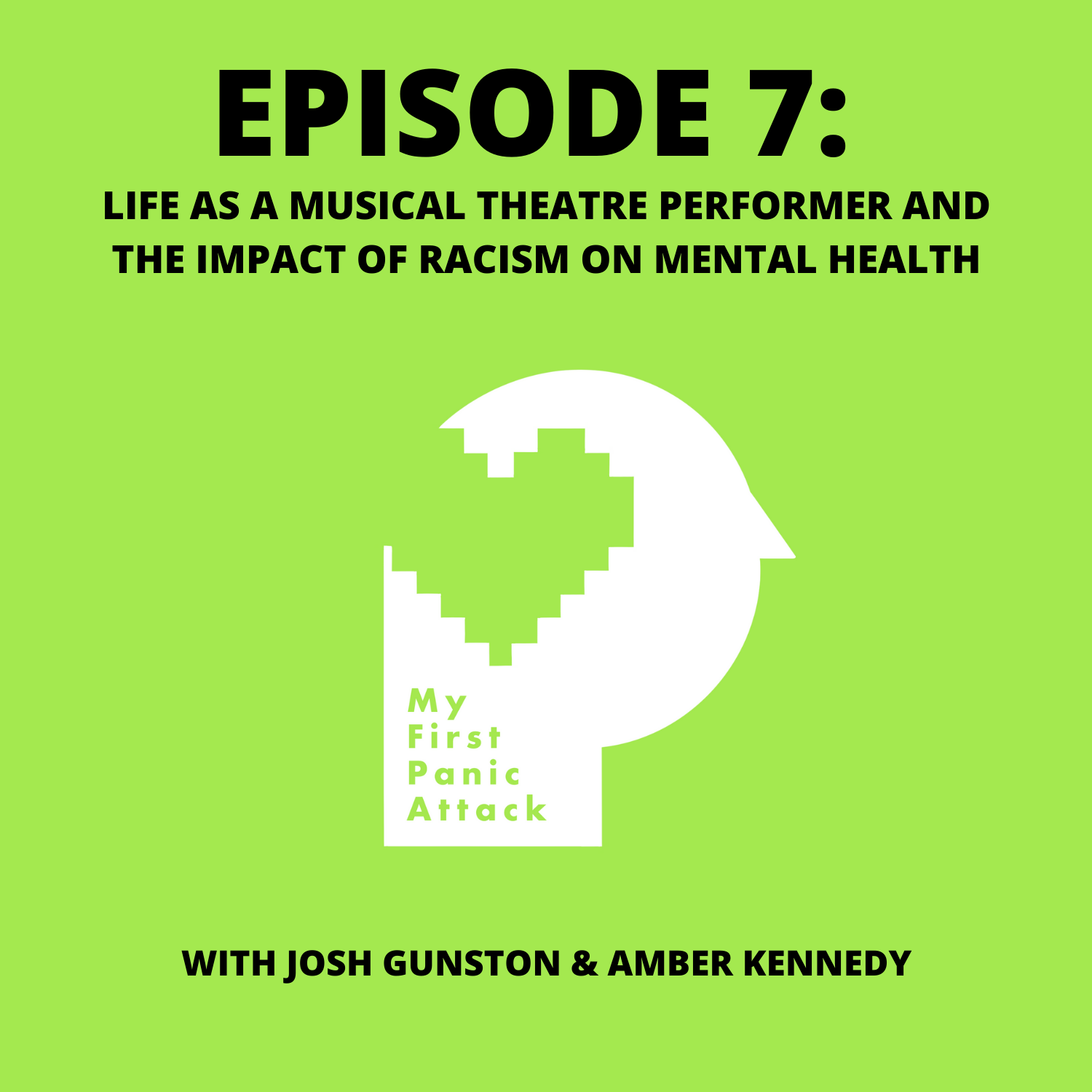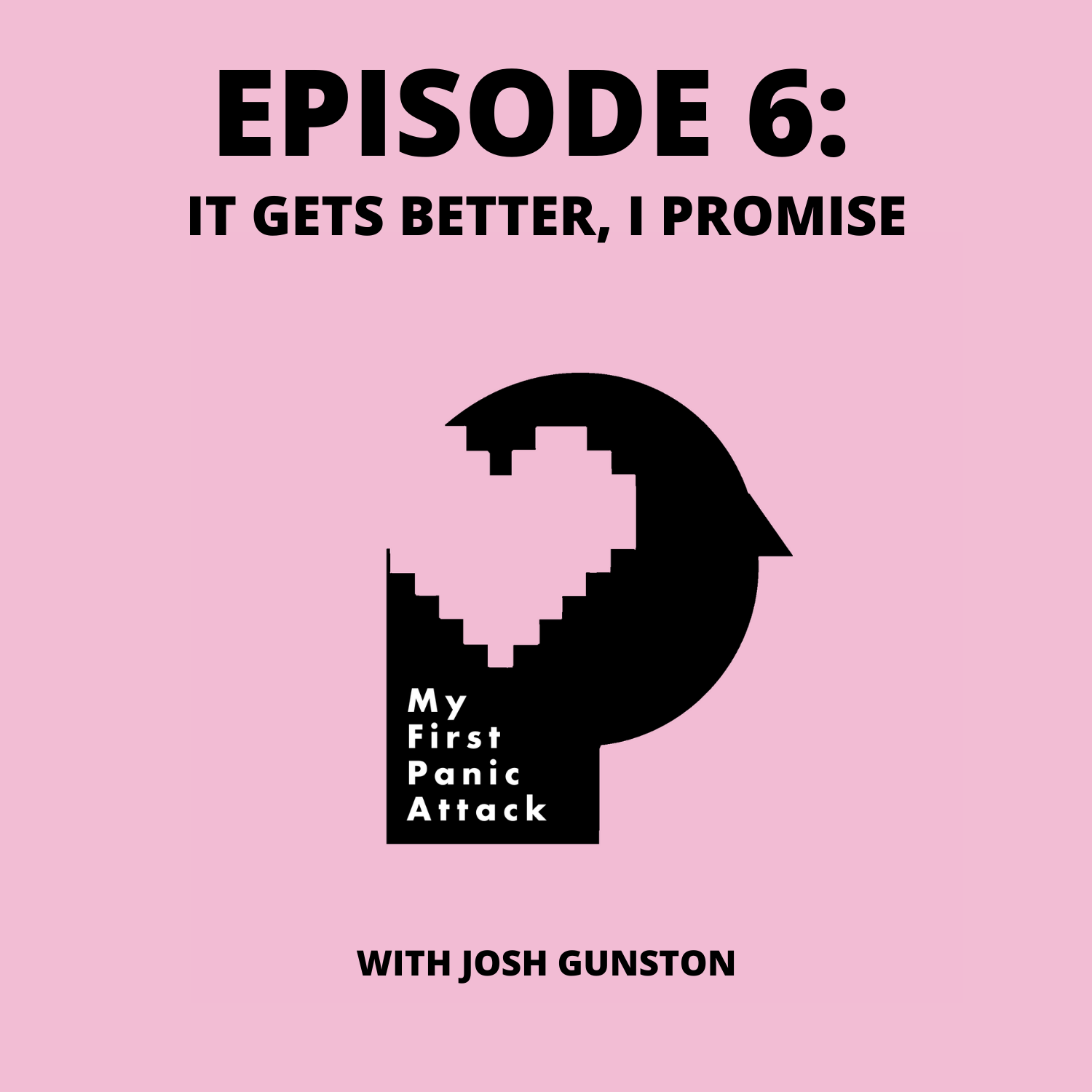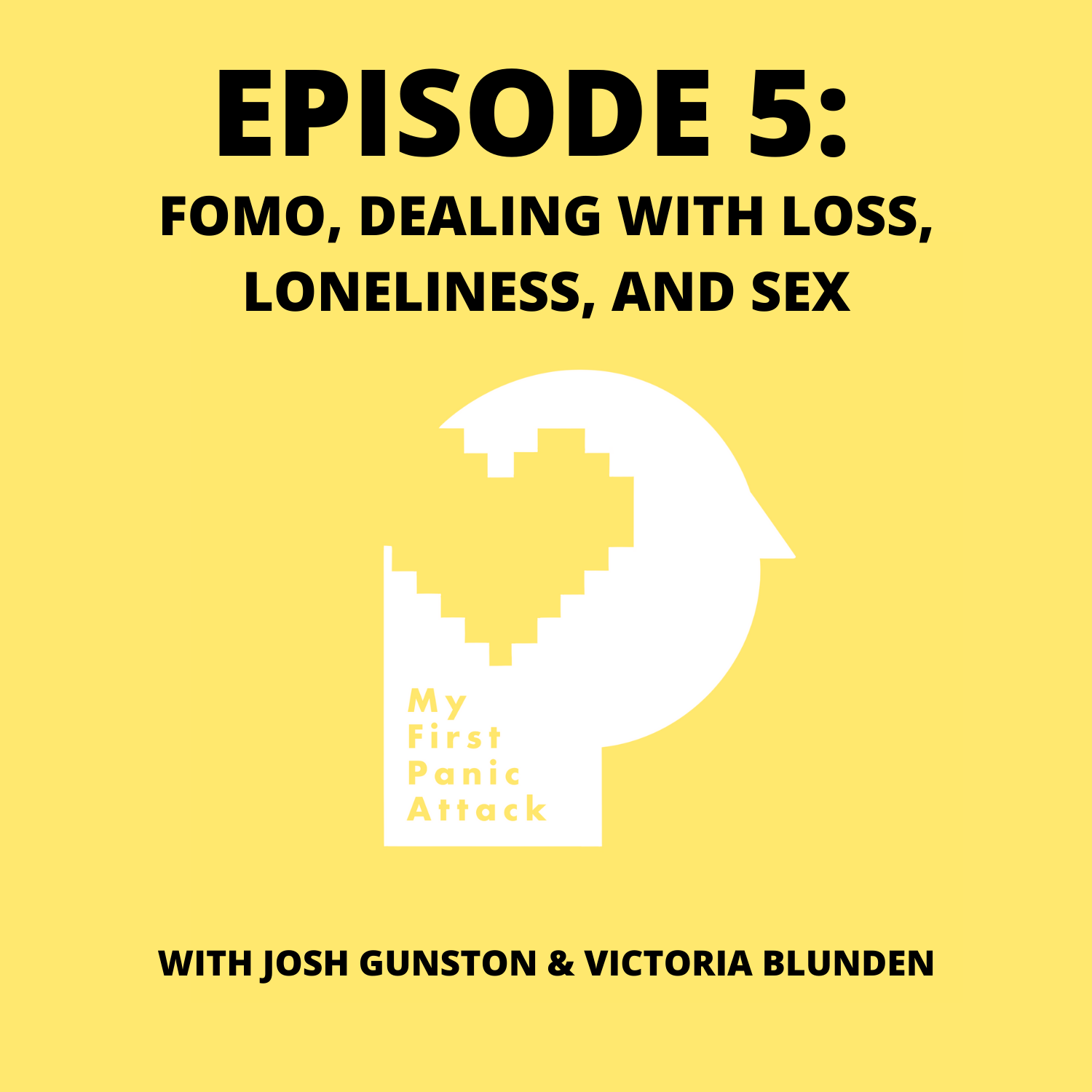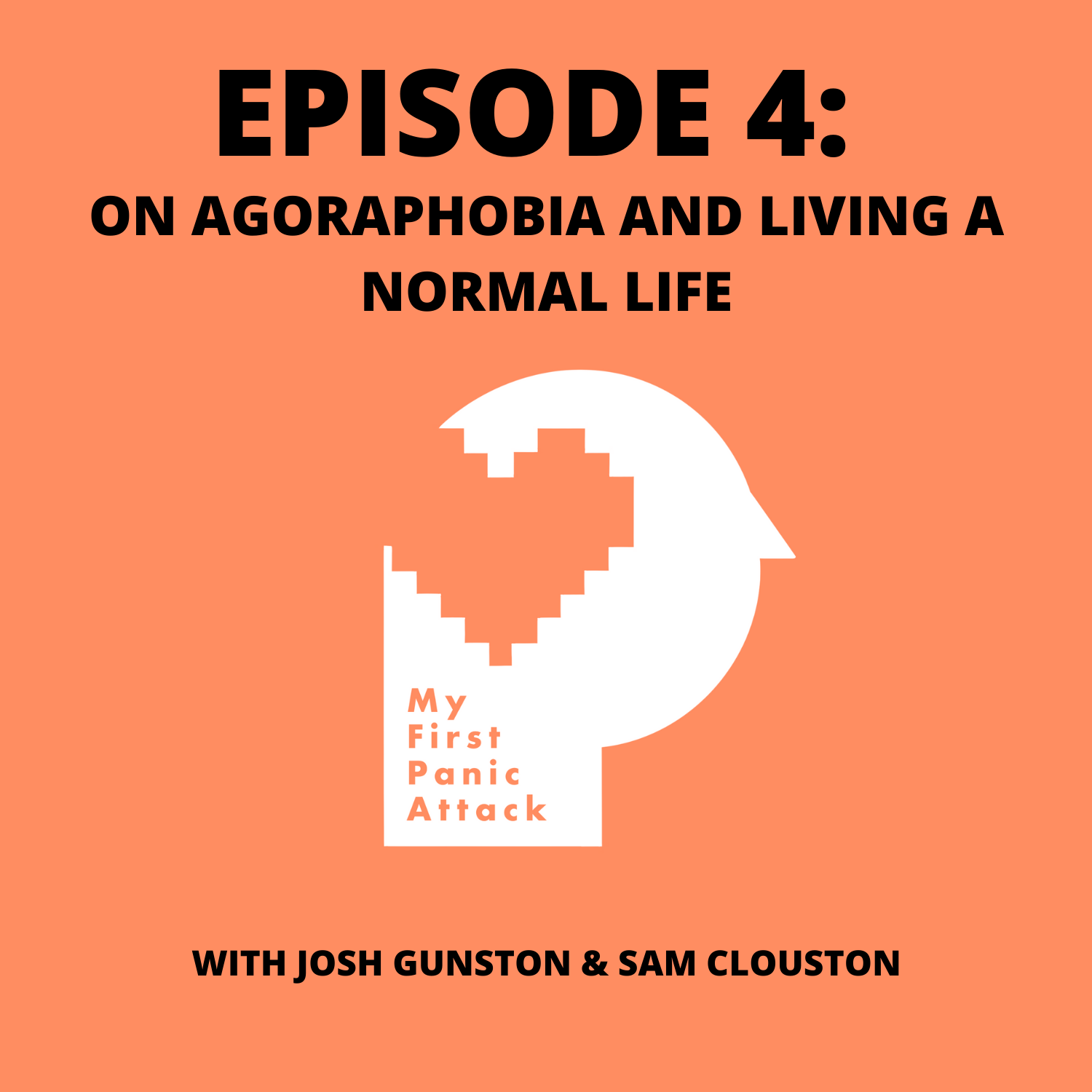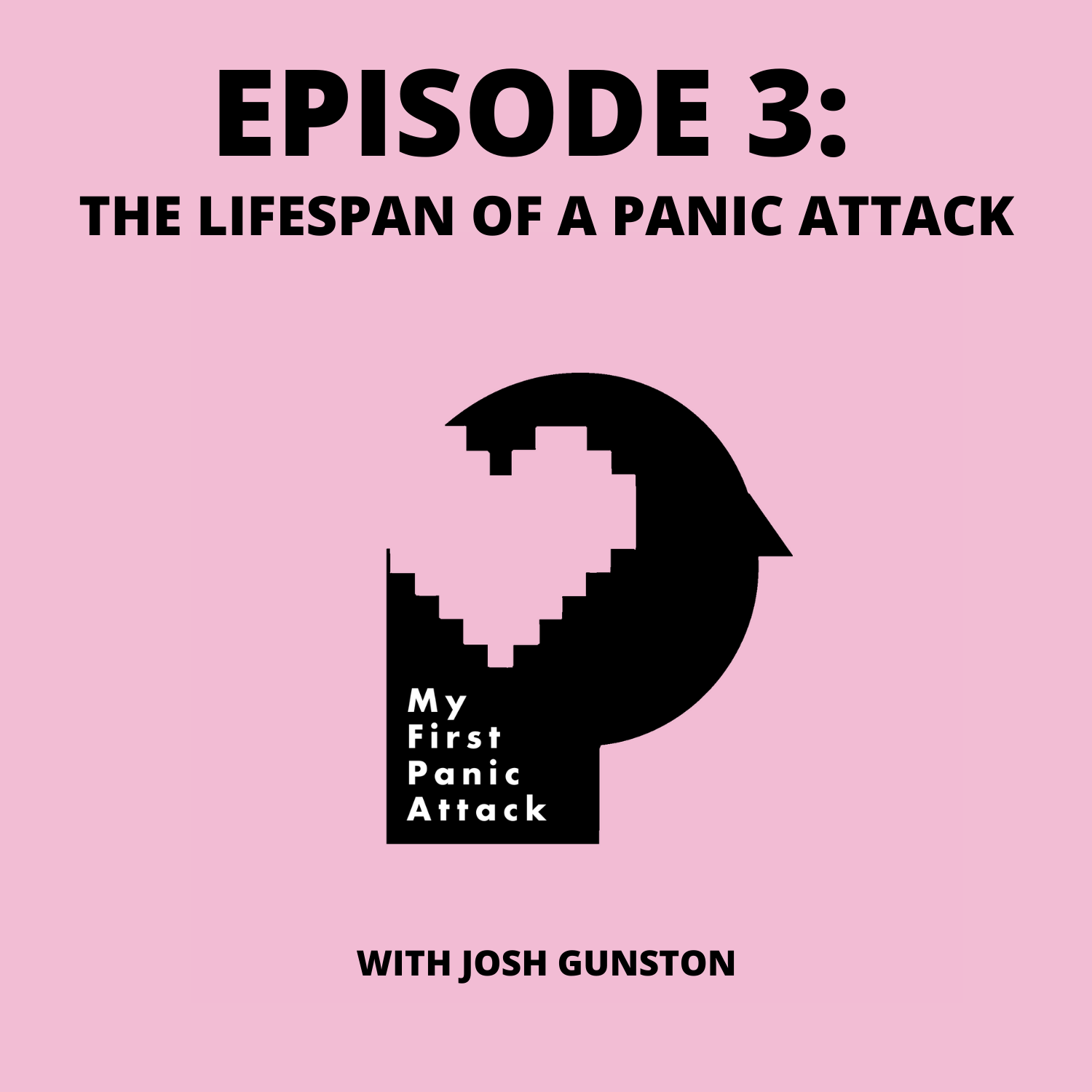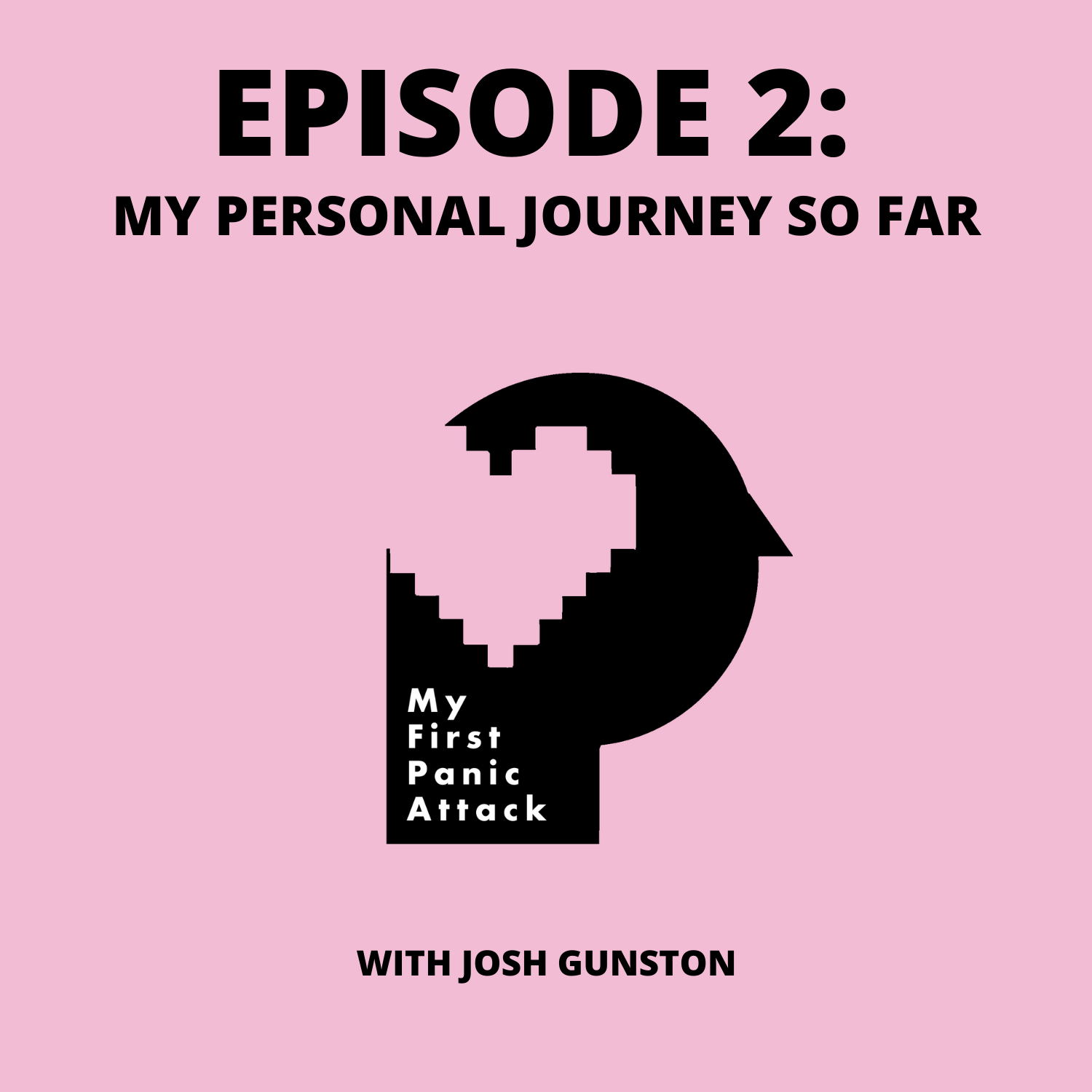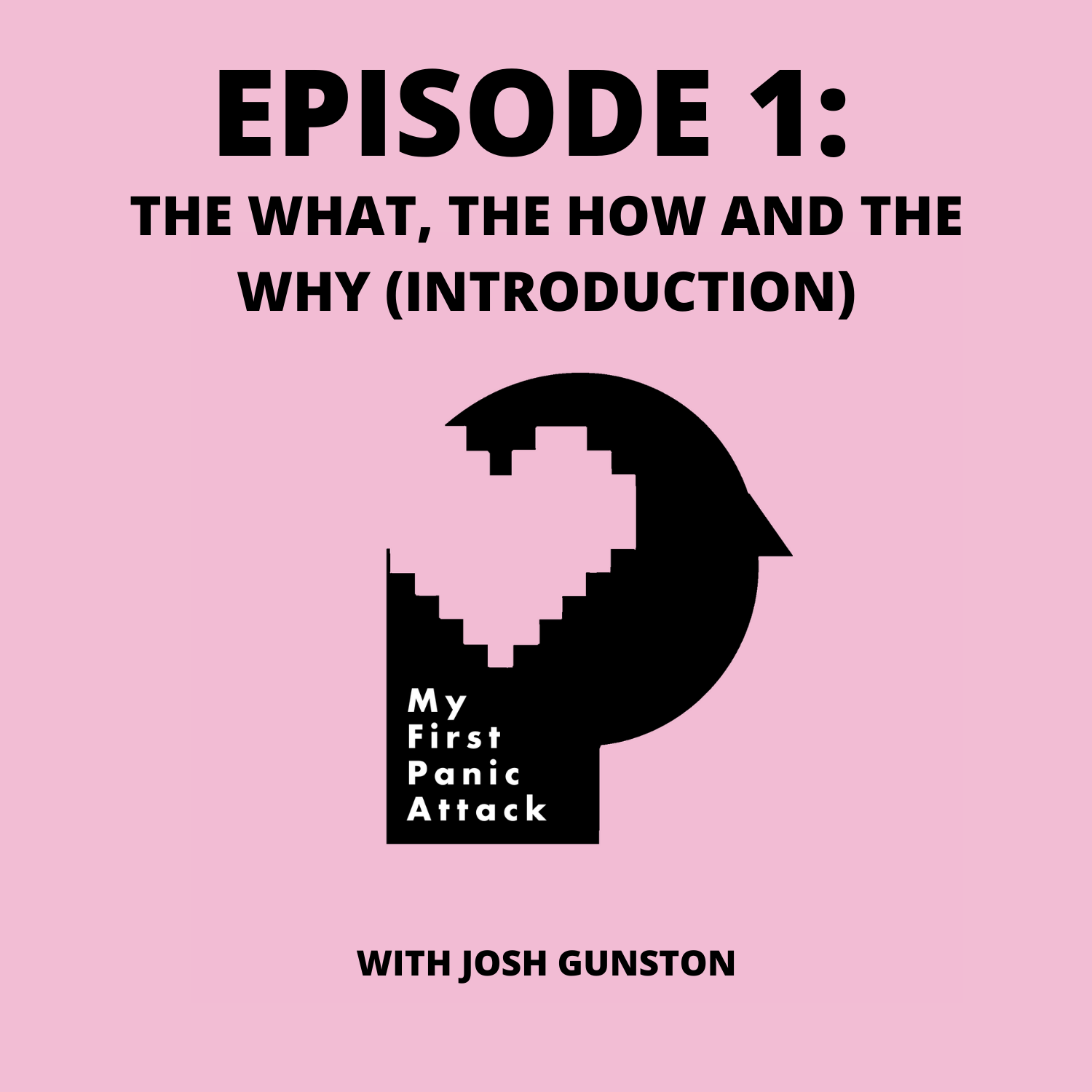Discover My First Panic Attack
My First Panic Attack

 My First Panic Attack
My First Panic Attack
Author: Josh Gunston
Subscribed: 7Played: 55Subscribe
Share
© Project Gosh
Description
‘My First Panic Attack’ is a series hosted and created by myself, Josh Gunston, which focuses on an individual’s unique personal story, highlighting their initial experiences with their mental health and their journey from then to now. Being that the stigma surrounding mental health is still extremely prominent, this series intends to break down the barriers by providing genuine, authentic and candid conversations, introducing a variety of different guests that can speak about these issues openly, and in turn, each episode may contain strong language. The conversation starts now.
16 Episodes
Reverse
It's been seven months since my last episode which is crazy. It's been a super tough time and I've struggled with my own mental health, hence the podcast taking a backstep. I've finally picked up the courage to record my sixteenth episode of the series, which explains why I've been away for so long and provides a general recap of 2021. This episode also touches on imposter syndrome, identity crisis, depression, 'the nostalgia effect' and more. I also explain what I have planned for 2022 and beyond.
I'll be honest, 2021 has been a very strange year thus far and rightly so considering all the shit we've had to go through. I first noticed in early January (just after my last episode aired which was almost eight weeks ago) that I was feeling more deflated than ever before, yet I wasn't necessarily sad, just worn out. Upon discovering this initial feeling, I attempted to embark on a short journey of self-discovery to uncover why I felt how I felt and to implement a set of coping mechanisms that I could use moving forward, and in turn, pass on to others who are feeling similar to how I felt.
Firstly, I had to identify what was wrong. The initial glaringly obvious discovery was that I felt as though I was living through a social drought brought on by the second lockdown in the UK — a social drought that I hadn't experienced before. Things were very different this time, especially compared with the first lockdown which, although tough, was still rife with a plethora of social activities such as daily video calls, games, quizzes and newly discovered walking routes. The second lockdown was contrasted with deflation, tiredness and a lack of anything worthy or remotely new and interesting to discuss with friends or family. I became angry with my friends, angry with the lack of replies in group chats, angry with the societal deflation taking place around me. Selfish? Perhaps, yet I just couldn't accept that things weren't good, and I constantly tried to fix the problems around me, rather than just simply ride the wave (easier said than done).
Some of the first steps I took was to stop being angry with the world and just accepted the uncertainty around me. I accepted that there would be a lack of social interaction because everyone had started to feel worn out by the constant fluctuations and anxieties. I accepted that my sleep was going to be shit, and in turn, accepted that there was most likely nothing I could do to fix this. I accepted that my friends weren't up for the same repetitive quizzes we once revelled in and began to map out activities that I could enjoy on my own, without friends. The list goes on and I explain this more thoroughly in the actual episode, but the biggest lesson here is acceptance: being able to just accept the cards we have been dealt with and to just keep moving forward to the best of our abilities.
This newfound acceptance has helped me feel more comfortable with myself. It took the pressure off me trying to constantly fix and control everything, making life more enjoyable and less suffocating.
I hope this episode can provide you with a sense of clarity in this uncertain time, and please let me know below if you've developed any new coping mechanisms that I may have missed.
Also, on a closing note, please do let me know if these podcasts are helpful to you. It's sometimes hard to gauge if I'm reaching people so any feedback is always appreciated. ❤️
This photo was taken 10 years ago today at a restaurant for my mum’s Birthday. It was 10 years ago today when I first properly contemplated suicide. During the meal, I had been plagued with these undiagnosed health problems (which later became known to me as panic attacks) and believed every minute that I was about to have a cardiac arrest and die. That evening, I sat in a crowded restaurant fearing that I was about to die in front of everyone, including my family. I also nearly choked on some food due to being so anxious and restless. I remember going to the toilet and thinking about dying there and then, holding back tears. I kept it hidden from everyone as I was so frightened. For months, I accepted my fate that I was dying to some unknown illness that doctors weren’t able to find. I came across this photo again recently and couldn’t stop looking at my eyes. Upon further observation, you can see the fear and terror in my eyes, with the dark bags underneath also conveying how bad my sleeping was too. All the photos of me from that era are the same and it’s quite disturbing looking back, especially in this photo.
It’s not all doom and gloom though. Today, I can look back in confidence about the experiences I’ve made over the last decade and will be using this episode to present 10 key points that I’ve learnt when dealing with panic attacks (and panic disorder in general).
Below, in no particular order:
Speak to a doctor first
Tell people around you (even strangers) what you are going through
Therapy and counselling isn’t optional, it’s a necessity
Panic attacks are good for you
Stop chasing a cure, there is none
Being busy is key
Stop the “I’ve had it worse” mindset
Relapsing is normal and gets easier every time
Pushing yourself out of your comfort zone will be the making of you
Drugs and alcohol probably won’t help
I really hope that these above points help as many people as possible. I've tried to go into as much detail as possible on each point and am hoping to individually cover a few of these points soon. Apologies for the excessive swearing in this episode also. Here’s to another 10 years!
2020 has been one of the hardest years many of us have ever had to face. If you're reading this then congratulations as you've made it this far.
This is a shorter episode as I wanted to conclude the year and provide you with some insight into what will be happening with the podcast in 2021. There a lot of exciting changes taking place and I can't wait to properly unveil them.
It's been five months since the podcast began so thank you to everyone who has supported me since the start. Please do let me know if there's anything you like or dislike about the podcast as this really helps moving forward.
Merry Christmas and stay safe! 🎅
I'm doing a lot better and have used this past week to really highlight what's been going wrong with my life. Admittedly, I feel slightly embarrassed upon listening back to the most recent episode but my purpose for doing this series in the first place remains clear: to help contribute towards the ever-changing mental health attitude taking place within our society, removing the stigma for good.
I'm not a therapist, nor am I a doctor, and I don't claim to be a self-help specialist, but I want to show you as openly as possible how an average mental health journey and timeline can look, through the bad and the ugly, through beauty and happiness.
I'm struggling a lot with my identity at the moment, alongside finding it hard to internalise what this podcast series is actually about. I'm trying to create self-help, but also, feel as though I'm not in a good headspace to provide any help right now. I feel the lowest I've felt in a very long time, and my daily routine is filled with self-doubt, suicidal fantasies, failure, and crippling depression. It feels as though my internal monologue has betrayed me during this crucial time of need.
The only way I can help others right now is to document this current headspace journey in an attempt to identify and pinpoint the triggers as to why I feel so painfully low. I plan to post updates in order to assess how I'm feeling so that I'm able to reflect and create a strategic resolution for those that are also in need.
If anyone listening notices a series of patterns or similarities then please do share that insight with me. Sometimes it's hard to pick up things on your own, so any feedback is much appreciated.
Foreword: I’m really struggling mentally at the moment, and feel as though I’ve hit “rock bottom” which is never a nice experience. Perhaps I’ll ride it out and get better soon, but when you’re in it, it’s almost impossible to see light at the end of the tunnel. The past week or so has been extremely challenging and I'm struggling to see a way out of it. Will keep you updated.
In this episode, I was joined by friend and business partner Jay McDougall. We’ve worked together very closely for five years and have been friends for over a decade. We’ve been through a lot together and have always been very open with each other about our mental health, so it made sense for us to sit down and have an open conversation. Although we are very different people mentally, we still try our best to understand each other.
Themes discussed in this episode range from the importance of sleep, the pressure to always be ‘working', ex-girlfriends and the impact they have on us, and the concept of life and death (big trigger-warning).
It's been a difficult September (hence the title) and it's taken three attempts for me to record this episode, mainly because I've been worrying that my content is all starting to sound the same. This led me to begin thoroughly planning out future episodes based on topics or themes, but in turn, this actually felt disingenuous.
Instead, I've decided to give you my candid "September wrap-up" episode, giving you an update on where I'm at currently and how I've been feeling mentally. This episode contains themes such as toxic masculinity, turning 27 years-old, relationships, comfort zone, anxiety about the future, and health anxiety.
Put it this way: out of the 88 people who have shown interest in appearing on the podcast as a guest, only seven were male (7.95%).
Sam and I have been close friends for 15 years and have always been open and honest with each other regarding mental health. This episode should give you an idea of how it should look, feel and sound when two men chat openly about mental health. We need to reinforce this kind of attitude when discussing how we feel, to ensure that young men (and old) can feel comfortable when talking about their feelings. We need to make it a habit to have these kinds of conversations on a regular basis, without shame, stigma, or judgement.
Themes talked about in this episode include social anxiety, symptoms of panic attacks, suicide, the male stigma, and the pressures of society.
In this episode, Amber Kennedy joined me to discuss her mental health journey which details her musical theatre performance career, her unfortunate relationship with social anxiety and the impact of racism on mental health (with an emphasis on early childhood).
I went to secondary school with Amber and hadn't seen her in almost a decade so we had a lot to catch up on which means that this is a slightly longer episode but we discussed some really important topics and themes which, in theory, could've been turned into their own individual episodes.
As humans, the thought of "rock bottom" terrifies us and creates an uncontrollable fear as we move forward in life. This mindset is dangerous as we begin to avoid anything that may potentially trigger a panic attack, which in turn, restricts and confines our comfort zone.
I'm not encouraging us to do things that harm our mental health such as taking drugs, being reckless and eating junk food, but instead, activities and experiences that push us out of our comfort zone, such as meeting friends, trying new things, and so on. Our anxiety and depression limit our comfort zone, forcing us to live a restricted and confined lifestyle. Pushing ourselves out of this comfort zone and expanding it is the first step in building a better, more fulfilling life.
As motivational speaker Les Brown said, “if you do what’s easy, your life will be hard. However, if you do what’s hard, your life will be easy.”
You can watch the video on hitting rock bottom here, and the video on expanding your comfort zone here.
For this episode, I'm joined by Victoria Blunden as we discuss some real personal issues regarding FOMO (the fear of missing out), loss of loved ones, depression, medication taboo, being promiscuous, and our general attitude towards sex and mental health on social media.
We both really opened up on this episode so as soon as this is uploaded, I'm disconnecting from the world for two or three hours as I'm scared of how honest I am, but again, this is the entire purpose of this podcast series.
In this episode, I was joined by a good friend and music industry colleague, Sam Clouston, to discuss agoraphobia and attempting to live a normal life, breaking down everything from health anxiety, panic disorder, sex and relationships, and more. There is a lot to break down here, so please do listen at your own risk.
This was the first time that I was able to speak with a guest on the podcast so apologies if things feel a little bit unstructured but I wanted to try and be as honest and candid as possible.
For those wondering, agoraphobia is an anxiety disorder characterised by symptoms of anxiety in situations where the person perceives their environment to be unsafe with no easy way to escape. These situations can include open spaces, public transit, shopping centres, or simply being outside their home. Being in these situations may result in a panic attack.
On Friday night, I experienced my first panic attack since the start of 2019. It had been such a long time since the last panic attack that it hit me harder than expected, mainly because my body was not used to the sensations.
Although I felt extremely anxious and on edge, the following morning I decided to start recording my reaction in an attempt to help document the recovery process and to shine a light on what an individual goes through when experiencing a panic attack. This also includes the "post-panic attack syndrome" (an unofficial term coined by myself) which includes heavy waves of depersonalisation and derealisation, a constant state of high alert, uncomfortable physical symptoms and a feeling of existential dread and anxiety.
Although the first recording was fairly morbid, the second recording was a lot more positive and optimistic. This is where I started to explain how I'd improved my mood and started to pick my life back up, only 48 hours after the initial panic attack. Everyone has their own ways of dealing with panic attacks, but I wanted to show you my journey on implementing order and stability back into my life, creating a sense of normality.
In this episode, I wanted to provide more of an extensive insight into my battle with anxiety and depression, in order to give you a more detailed understanding of what to look out for when dealing with friends who are suffering or have suffered, or maybe you're experiencing these uncomfortable feelings and need a helping hand in identifying it yourself.
‘My First Panic Attack’ is a series hosted and created by myself, Josh Gunston, which focuses on an individual’s unique personal story, highlighting their initial experiences with their mental health and their journey from then to now. For the debut episode, I wanted to keep things short and sweet by introducing myself and explaining the concept and my reasoning behind starting the podcast.



